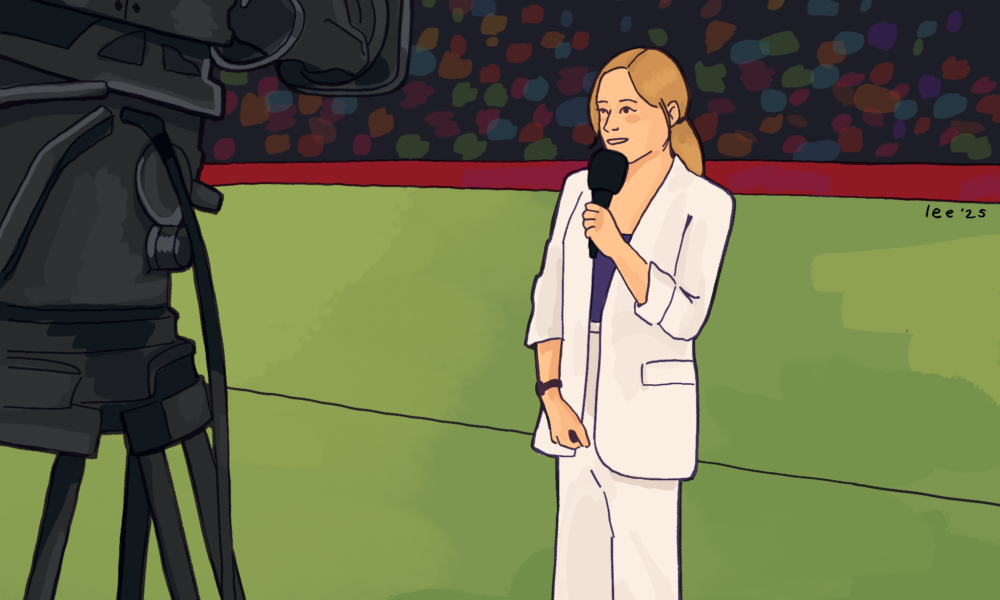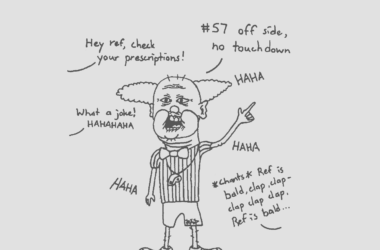Sports journalism is often seen as a “soft” area of the media, but it is a lot more complicated than it appears. In covering sports events and athletes, journalists must uphold key journalistic practices, ensuring they truthfully and fairly represent the stories they are telling. Oftentimes, however, journalists and media sources covering sports fail to do so, breaching ethical boundaries or contributing to harmful cycles in the process.
Sports media should represent all stories
Sports are an incredibly diverse domain, with people of all ages, ethnicities, genders, and racial identities participating, making them unifying activities. Thus, it is the responsibility of sports journalists to make sure they are telling the stories of all kinds of athletes, as well as accurately representing them. The Paralympics deserve the same standard of coverage as the Olympics, the WNBA the same coverage as the NBA, and the African Cup of Nations the same coverage as the Euros.
Equitable media representation spurs higher levels of sustained interest in underrepresented sports, or underrepresented groups within a sport. An area in which sports media severely lacks this equal representation has been in women’s sports, with a 2023 study finding they made up 15 per cent of sports media coverage. This is unjust to women athletes, who have worked tirelessly to get to their professional status, and also contributes to lowered interest in women’s sports, as higher levels of media coverage for a league are directly tied to increased interest. Swedish Television committed to increasing coverage of women’s sports so that it was equal to men’s sports coverage. They found that the league’s broadcast often became so popular that competitors sought to acquire their rights.
Technology must be used responsibly
Journalism is one of many fields that has been negatively impacted by an increasing reliance on AI, and sports journalism is not safe from this. Beyond the ethical and environmental implications of AI-generated content, responsible journalism requires a human perspective and human values. Emotionally charged writing is something a machine could never be taught. It is what separates a sports piece from being a droning recap of a game to something that readers can connect to.
There is a disturbing rise in AI-generated content, even among reputable sports news sources. Sports Illustrated, for example, published articles written by AI in 2023, and She’s A Baller posted now-deleted AI-generated images on their social media. In both of these instances, an opportunity was taken away from a writer or an artist to produce work that offers a human perspective.
Sports journalists need to respect athletes
When working with athletes, journalists also have the responsibility of protecting their privacy and dignity. This includes avoiding invasive questions that are not relevant to the topic at hand or questions that have discriminatory undertones—like when Canadian tennis player Eugenie Bouchard, after winning an Australian Open match in 2015, was asked by a reporter to “give [him] a twirl” and tell him about her outfit, rather than about her performance.
Sports media often use biased or discriminatory language
Like any form of journalism, it is important in sports writing to avoid using language that stereotypes athletes, especially when the language pushes discriminatory ideology about underrepresented groups. For example, male athletes tend to be described as “men”, while female athletes tend to be described as “girls”.
Athletes are also often stereotyped based on their racial identity; Black athletes or athletes of colour with darker skin are often described in relation to their height and perceived “natural” physicality, while white players’ physical moves are often attributed to intelligent decision-making. This kind of language reinforces harmful stereotypes, categorizing individuals based on race, gender identity, or other underrepresented traits. It is up to sports journalists to be vigilant about their word choices and consider whether any of their language is motivated by unconscious bias.









